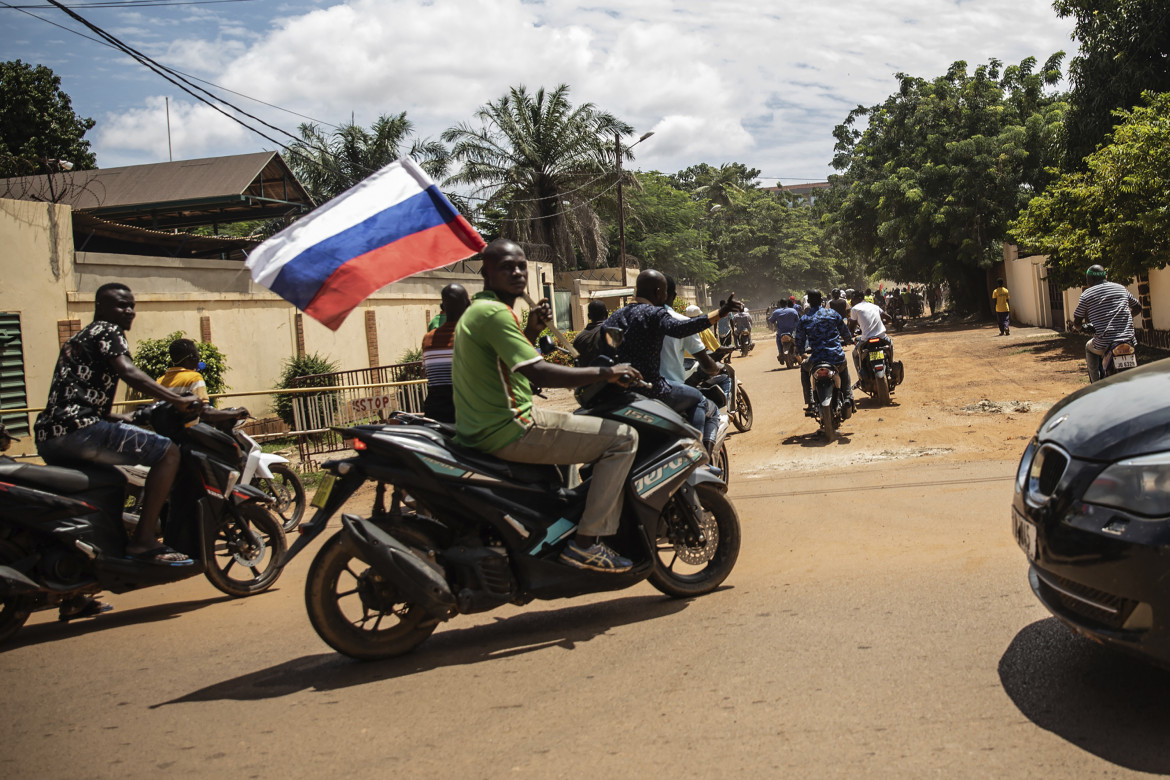Analysis
Sub-Saharan Africa is Moscow's new gold mine
The Central African Republic, Mali, Burkina Faso and to a lesser extent Guinea and Sudan are now firmly in the Russian orbit, and this is turning into great business for Moscow.

In sub-Saharan Africa, more and more countries are ending up in Moscow’s orbit. The Russian expansion project first chipped away at the decaying French power in the region with a clever smear campaign, and has clearly accelerated its pace in recent years, thanks in part to coups d’état that have brought down country after country of the now former Françafrique like dominoes.
The Central African Republic, Mali, Burkina Faso and to a lesser extent Guinea and Sudan are now firmly in the Russian orbit, and this is turning into great business for Moscow. Almost everywhere now, the long hand of Putin is actually acting through the less and less unofficial Wagner Group, which has been active on the African continent for years. These mercenaries on Yevgeny Prigozhin’s dime have transformed from a simple private army available to anyone who could pay into a veritable powerhouse with an ever-increasing turnover. The Wagner Group became the personal guard of Central African President Touadera, rewarded in turn with permission to cut down entire forests to export valuable timber and with control over the country’s gold mines. Prigozhin’s company now brings entire teams of geologists along, who immediately quantify the real economic potential of the mines.
In the Central African Republic, it was very easy to take control of everything because the country had been abandoned by everyone; in Burkina Faso and Mali, however, Moscow’s tactics were more subtle. In Ouagadougou, the new military junta began to create problems for foreign companies operating in the mines, forcing them to break contracts and be replaced by Russian companies, causing gold mining to decrease by more than 15 percent. About ten tons of the metal apparently ended up in Russian hands and were smuggled out across the border.
In Mali, the Russians persuaded the authorities not to grant new mining permits and to create a national company to manage all mineral resources, which also happens to be controlled by a Russian-Malian joint venture. It was a shrewd move that keeps the involvement of Russian companies out of view and allows access to key minerals such as uranium, which Mali has an abundance of in its northern regions, now still firmly in the hands of jihadist groups.
In Guinea, the target of the businessmen from Moscow is bauxite, of which the African state is the continent’s top producer. A series of unexpected audits took the company that controls the largest mine in Guinea by surprise. American and Chinese companies also work here; bauxite, in addition to being quite rare, is crucial for making aluminum. Lieutenant-Colonel Mamady Doumbouya, the strongman in Conakry for many years, has worked with the Russian military in the past and is a personal friend of the coup-installed leaders in Mali and Burkina Faso, which puts his own coup to dethrone 80-year-old Alpha Condé in context.
In addition to its economic control over these important countries, Moscow is also adding “political” control to the mix, especially at the United Nations, where there are still many African nations that won’t take a position on Russia’s invasion of Ukraine, allowing Putin to still conduct a significant range of international relations.
Meanwhile, Russia is continuing its heated negotiations to secure a base for its military fleet in Sudan, which would overlook the Red Sea and enable it to control one of the most important communication routes in the entire world. Such a strategic move would also upset Beijing, which has made the Belt and Road Initiative (the New Silk Road) its most important project and which certainly can’t do without the Red Sea and the Suez Canal to connect Asia to Europe.
Originally published at https://ilmanifesto.it/lafrica-sub-sahariana-e-nuova-miniera-doro-di-mosca on 2023-04-04
